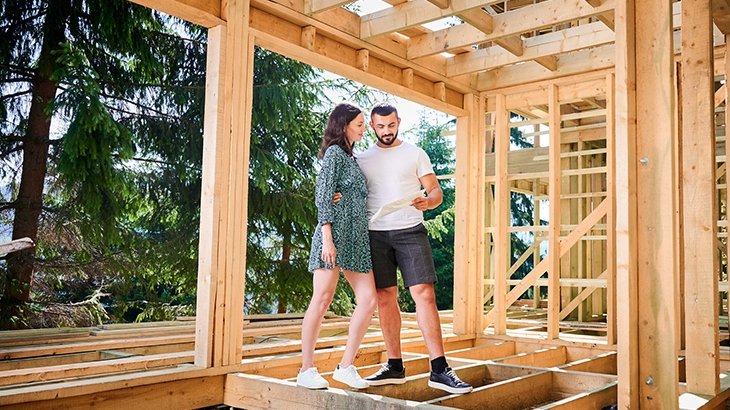3 Things to Consider in a Custom Construction Loan
If you're house hunting, you'll find something you don't love in a few houses. For some shoppers, it could be small—the island in the kitchen needs to be a little to the left—for others, it may be a bit more significant—like missing an extra bathroom.

If you're flexible with location, and you have some extra time, building a custom home may be the only way you end up with a place that meets ALL of your qualifications.
Unfortunately, building a custom home is often far more complicated than buying a house that's move-in ready (check out our article on what to look for when shopping for a lot to learn more). There's more room for error with things like government permits, building certifications and weather-related challenges. There are also a lot more people involved like architects, electricians and inspectors. Naturally, this means that receiving financing for your custom build could be a lot more complicated too. Here are a few things to think about.
- Build In Time for Inspections & Approvals
When you buy a move-in ready home, you'll likely be approved and receive the funding you need from your lender in one lump sum (less the escrow process, of course).
How does that work? After completing a lender's pre-approval or pre-qualification steps, you'll be approved for a mortgage up to a certain dollar amount. Then, after a few inspections of the specific house that you want to purchase, your lender will provide the funds to the seller to complete the purchase.
On the other hand, when financing a custom home money will usually be provided in stages. For example, you may receive a certain percentage of your total loan amount to buy the land, then another set amount to start the foundation, followed by yet another to complete the structure, and so on. However, lenders will almost certainly have inspections and verification steps that need to be completed BEFORE you receive the next set of funding—another reason it's important to be flexible and build in extra time in your process. Many lenders may even require separate loans, with their own unique application requirements, for these various building "mile markers". - You Could Need More Than One Loan
As mentioned above, many lenders require multiple loans to build one house. For example, one loan will pay for the building of the home, and the other will be your "permanent" financing. - Who You're Working With at First Might Not Be Who You'll Work With Later
As is the case with most home loans, your custom construction mortgage could be bought and sold over and over again. Many lenders sell their products (which includes mortgages, among others) to other lenders. So although you may be applying and working with the local bank branch down the street, there's a good chance your loan(s) will be sold to another bank or other lender. If you've got multiple loans for your home - and most custom builds do—you can see how this can get confusing.
WaFd Bank is Here to Help
When it comes to getting your finances in order for the ups and downs of life, a little planning goes a long way. Whether you're a seasoned budgeting pro or new to saving (check out WaFd Bank's account options while you're here), your local WaFd Bank branch is available to help you reach your financial goals. Open an account online, visit your local branch, or give us a call at 800-324-9375 to learn more and open an account today.
Did you find this article helpful? Share it!


